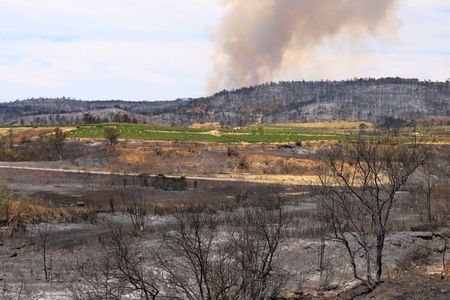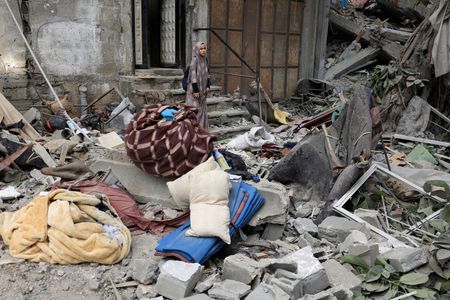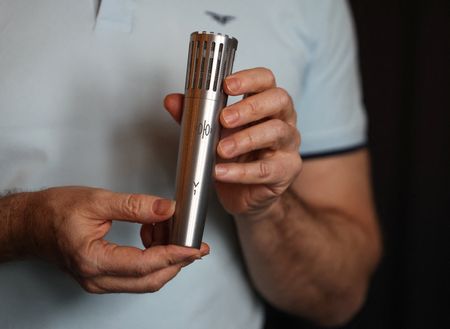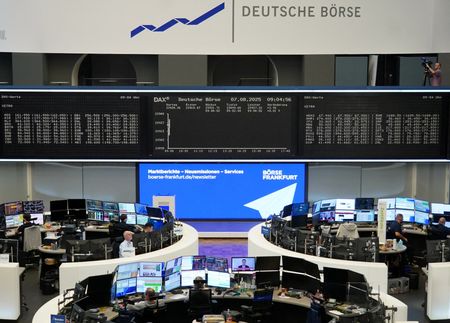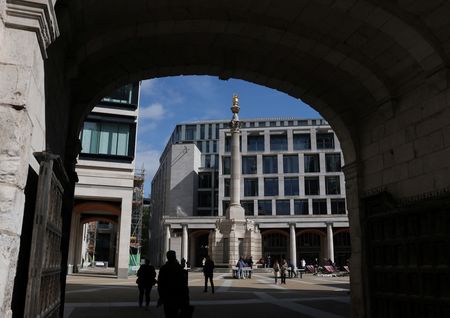By Gus Trompiz
PARIS (Reuters) -In southern France’s sun-seared Aude region, farmers have been reluctantly digging up vines, spurred on by declining wine consumption and state subsidies, removing a natural, moisture-filled brake against wildfires.
The loss of vineyards – nearly 5,000 hectares in Aude in the past 12 months alone – and its impact have been laid bare this week as the biggest wildfire in France since 1949 sweeps through the region, fanned by strong winds and parched vegetation.
On Thursday, around 2,000 firefighters battled to control a blaze that has burned an area bigger than Paris, scorching homes, forest and farmland, and killing one person.
Gusting winds saw the fire’s frontlines jump hundreds of metres across a tinder-box landscape at a time, with the blaze at one stage advancing 5 kph. But local winemakers and mayors are also blaming the loss of vineyards for the fire’s rapid spread.
“It’s very striking that everywhere where there were vineyards, the fire was for the most part stopped,” French Prime Minister Francois Bayrou told growers on Wednesday as he visited the fire zone.
The wildfire has charred some vineyards. But in many areas, neatly-manicured rows of vines and scrub-free soils survived as the fire burned around them, even if their grapes were destroyed.
Baptiste Cabal, whose family cultivates 60 hectares in Saint-Laurent-de-La-Cabrerisse, at the epicentre of the blaze, said ripped-up vineyards were often left fallow, overtaken by scrub and brush.
“Less idle land and more vines would be much better.”
‘THE LAST BARRIER’
Aude, part of the historic Corbieres wine belt known for its rich, aromatic reds, has lost 7% of its vineyards this year alone, extending a steady decline in recent decades.
The government is paying growers 4,000 euros ($4,661.60) per hectare to tear up their vines to lower production to curb excess supply as drinking habits change.
While it has encouraged other crops like olives and pistachios that can withstand the Mediterranean summer, local growers say there are no alternatives in the parched hills of Aude after sheep farming mostly disappeared.
Europe is heating up at twice the global average speed and is the world’s fastest-warming continent. Climate change increases hot and dry conditions that help fires spread faster, burn longer and rage more intensely. Aude has been in a state of drought for three straight years.
“Nothing has been able to replace vines,” said Ludovic Roux, a wine grower and president of Aude’s chamber of agriculture. “Vines are the last barrier against fires.”
Local growers said hundreds of hectares of working vineyards had been destroyed while grapes from other plots risked being unusable after being covered in fire-retardant chemicals, or because smoke will spoil their taste.
Cabal, who heads a local cooperative that produces wine on behalf of about 30 family growers, forecast a “catastrophic” harvest, with at least half of his family’s vines damaged.
Local farmers worry they may not recover without massive government support, leaving the region even more vulnerable to fires.
“When there’s uprooting there needs to be diversification with other crops, said Jerome Despey, a grower in the neighbouring Herault region and vice president of the FNSEA farmers union. “But the most important thing is to preserve vines, which are adapted to the Mediterranean climate.”
($1 = 0.8581 euros)
(Reporting by Gus Trompiz; editing by Richard Lough and Andrew Heavens)

